[Herald Review] Dystopian black comedy ‘Concrete Utopia’ has questions instead of message
By Kim Da-solPublished : Aug. 3, 2023 - 18:39
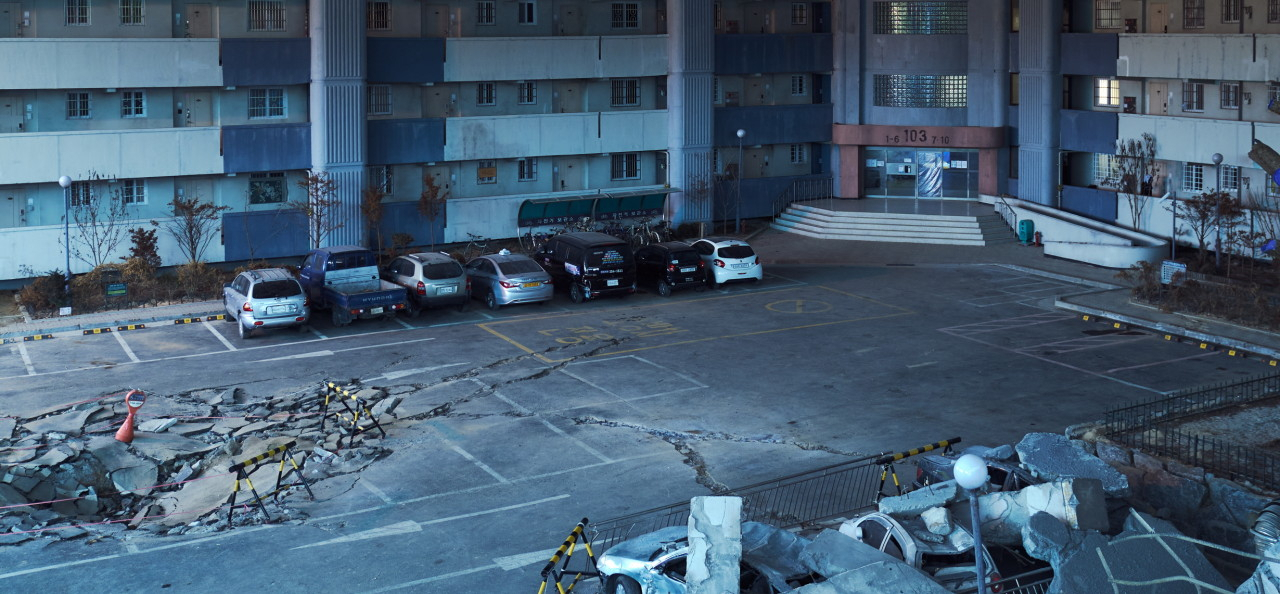
When it comes to ‘living in an apartment,’ or specifically ‘owning an apartment,’ many Koreans perceive that differently from simply having a place to live. An apartment could be someone’s life goal or another’s deep grudge. In that context, “Concrete Utopia” raises questions about the contradictions humans face when put in extreme situations -- such as when your apartment building becomes the only place in Seoul that has survived a devastating earthquake.
Director Um Tae-hwa’s “Concrete Utopia” is a dark, black comedy disaster thriller that tells the story of apartment residents whose homes threaten their lives. Residents of Hwanggung Apartment building No. 103, the only building that has survived a destructive earthquake, initially see their building as a "utopia," but that thought simply signals the beginning of a dystopia as non-residents start to flock to the building.
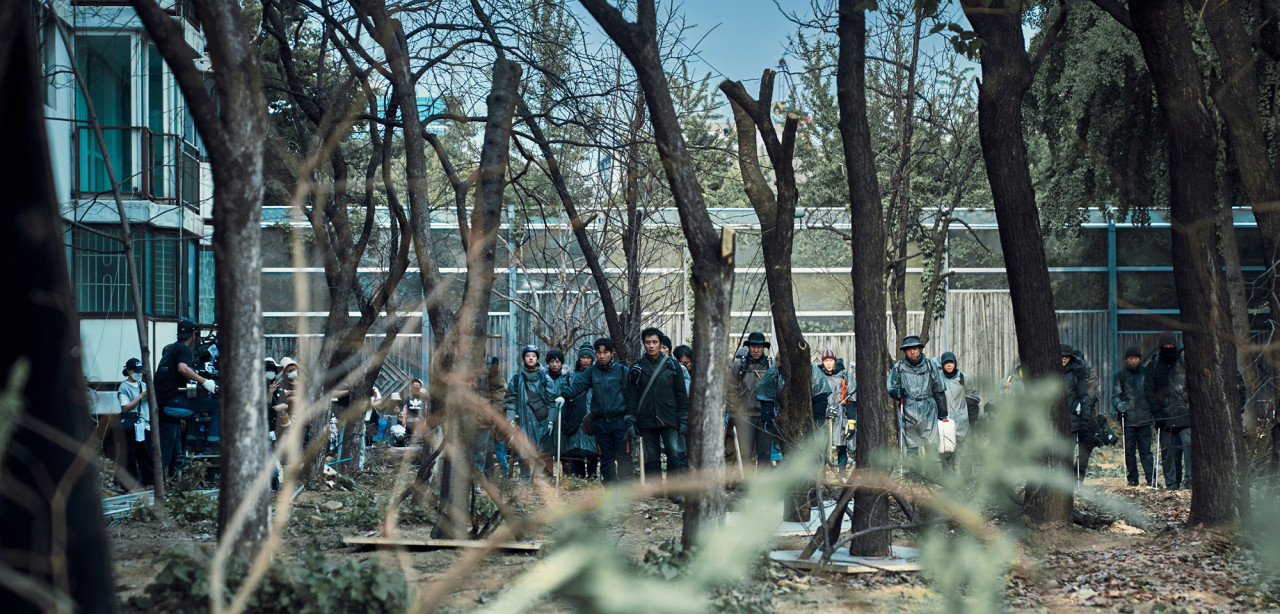
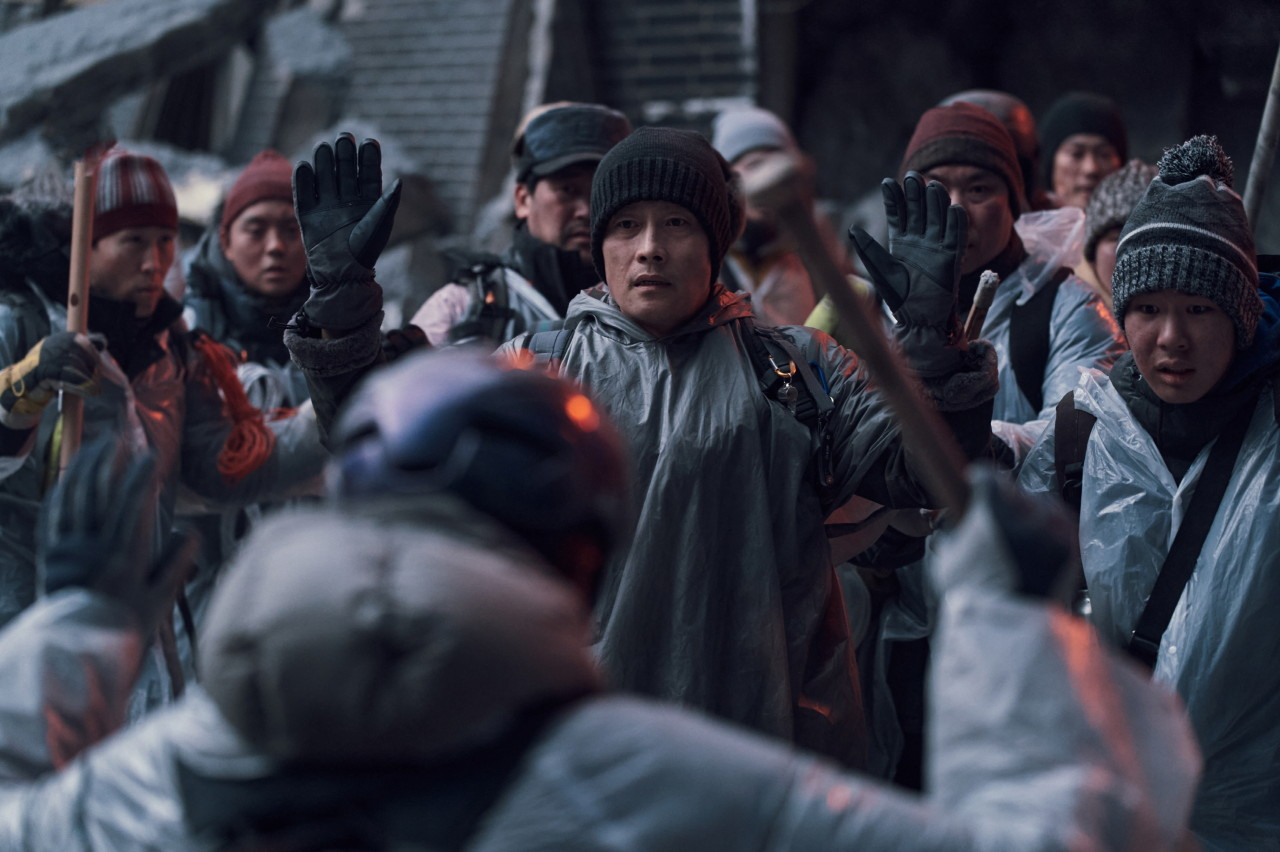
Calling non-residents who have sneaked into the building "cockroaches," residents of Hwanggung Apartment gather together to protect their utopian home from non-residents. At the center is Kim Young-tak (Lee Byung-hun), who would be willing even to die if there is anything he can do to protect his home and the building.
In exchange for such passion and willingness to sacrifice himself, he is elected to represent the apartment building residents, wielding enormous power among the residents. Next to him is Min-sung (Park Seo-joon), a reliable, seemingly good-hearted neighbor who supports Young-tak in many ways to keep things in order and establish a system amidst the chaos as food and water become scarce.
But Myung-hwa (Park Bo-young), the wife of Min-sung, doesn’t like how the residents of Hwanggung Apartment kick out the non-residents who will otherwise starve or freeze to death in the extremely cold weather outside. At one point, she notices that Young-tak shouldn’t be trusted.
The movie asks the audience whether you would do the same if your home were the only place to survive a colossal disaster and non-residents were to flood in. It is unclear which decision is the wisest, as that question is left unanswered even after the film's 129-minute running time. One can't tell whether the unsettled feeling after the film is simply due to the genre’s characteristics as a dystopian flick.
“Concrete Utopia” doesn’t simply show Koreans’ fantasies about owning an apartment or the loss of humanity in extreme situations. Rather, it invites discussion about humans' problematic desires and behaviors, including: greed, discrimination, the desire for power and human-made hierarchies.
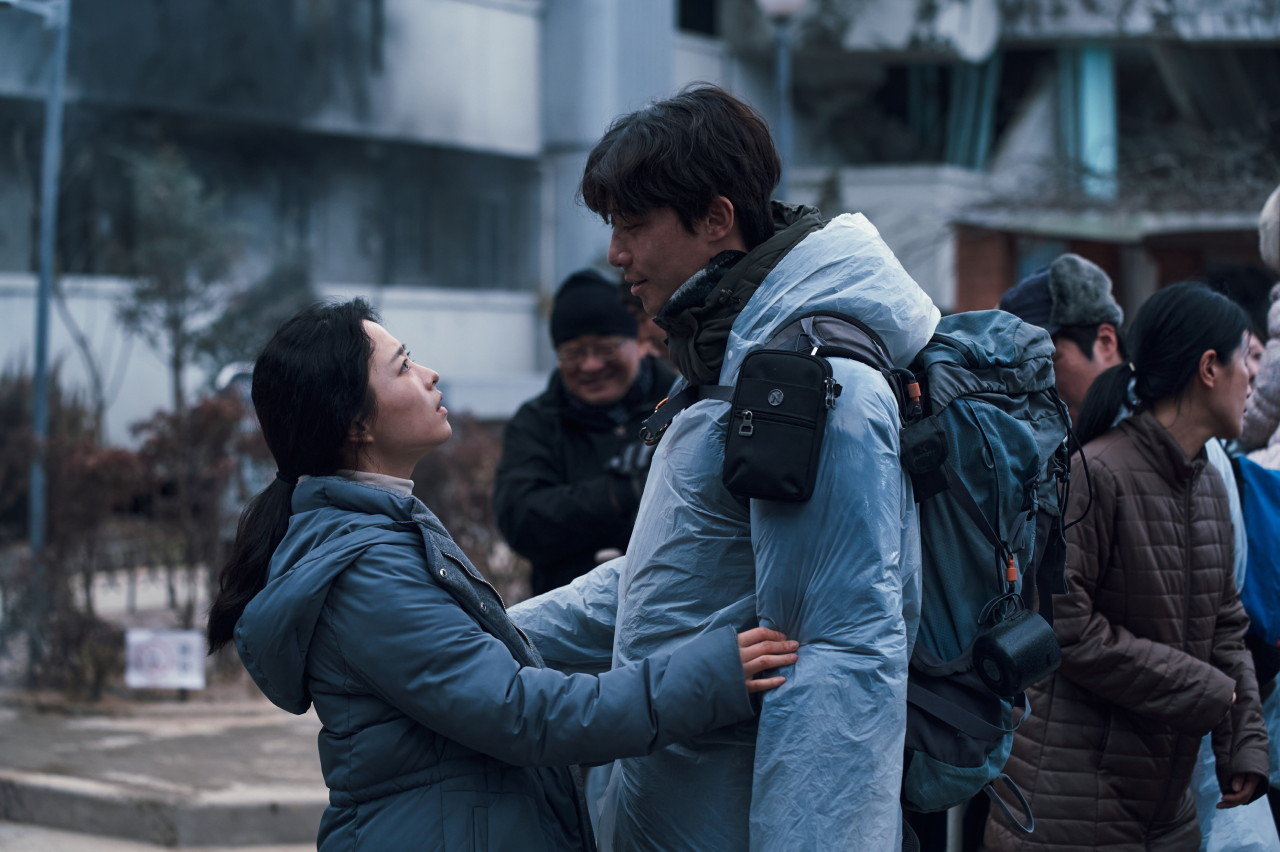
Park Seo-joon and Park Bo-young show well-balanced acting, firmly supporting Lee Byung-hun, who once again fantastically portrays a complex, multi-dimensional character as the story unfolds.
Director Um’s clever opening sequence showing what apartments mean in Korean society elevates the audience’s understanding of the film’s tone and style, making the film’s topic accessible and relatable to moviegoers anywhere. The film has been invited to various international film festivals including the 48th Toronto International Film Festival, and will open in 152 countries.
“Concrete Utopia” opens in local theaters on Aug. 9.






![[KH Explains] No more 'Michael' at Kakao Games](http://res.heraldm.com/phpwas/restmb_idxmake.php?idx=644&simg=/content/image/2024/04/28/20240428050183_0.jpg&u=20240428180321)








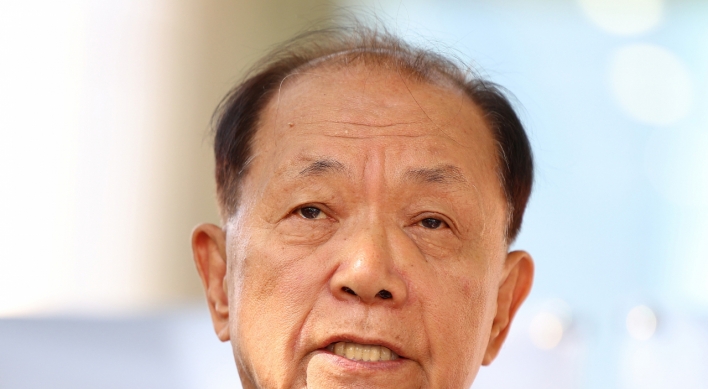


![[Herald Interview] Mistakes turn into blessings in street performance, director says](http://res.heraldm.com/phpwas/restmb_idxmake.php?idx=652&simg=/content/image/2024/04/28/20240428050150_0.jpg&u=20240428174656)
